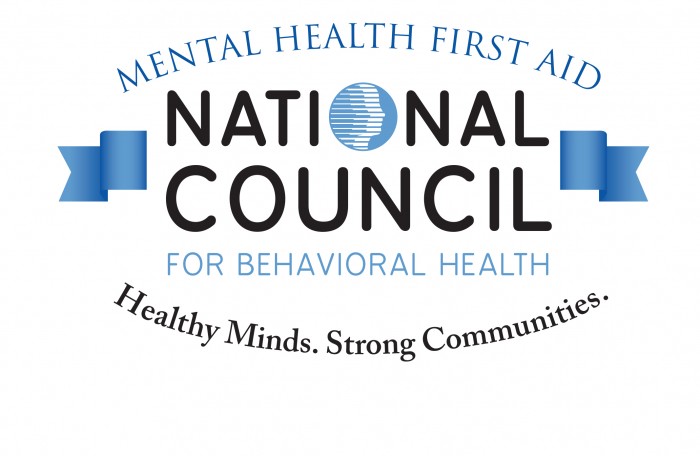Secretary of Health Signs Expanded Mask-Wearing Order
OJJDP and NIJ Bulletin Summarizes Findings from 2017 Juvenile Residential Placement Census
National Council Get Out the Vote Toolkit
DDAP Announces FASD Training and Resources
Fetal Alcohol Spectrum Disorders (FASD) Training And Resources
The American College of Obstetricians and Gynecologists (ACOGO) partnered with the Centers for Disease Control and Prevention (CDC) to offer free online trainings and access to resources that support the prevention, diagnosis, and care of fetal alcohol spectrum disorders for health care professionals.
Human Services Encourages Choices to Protect Individuals with Disabilities and Other Vulnerable Populations
FOR IMMEDIATE RELEASE
June 30, 2020
Harrisburg, PA – The Department of Human Services (DHS) today encouraged Pennsylvanians to make socially responsible decisions that protect themselves, their families, their communities and vulnerable populations, such as individuals with disabilities, from the dangerous COVID-19 virus. As Pennsylvania businesses reopen and people increasingly interact in public spaces, we must remain vigilant in heeding the advice of public-health professionals to wear a mask or other face covering, wash hands regularly, stay home if you’re sick and avoid large gatherings as much as possible.
“When you wear a mask in public spaces, you are protecting not just the people you encounter in the grocery store, or the barber shop or the July 4 family gathering,” DHS Secretary Teresa Miller said. “You are protecting everyone who might become a later link in a chain of COVID-19 transmission that you didn’t know you were a part of until it was too late. Too often, the people on the end of that chain are individuals with disabilities whose lives depend on the rest of us to make good decisions.”
Secretary Miller also announced that starting July 1, funding from the Coronavirus Aid, Relief, and Economic Security (CARES) Act will begin to go out to long-term care, LIFE program, personal assistance service providers as well as Community HealthChoices (CHC) managed care organizations. This funding includes:
- $245 million to nursing facilities in two one-time payments:
- $196 million of these funds will be distributed based on the number of Medical Assistance (MA) bed days in the third quarter of CY 2019. This will be for both fee-for-service and CHC Community HealthChoices.
- $49 million will be distributed to all nursing facilities proportionally based on their number of licensed beds.
- $8 million for a one-time payment will be made based on the proportion of MA residents who receive necessary ventilator or tracheostomy care during the 3rd quarter of CY 2019. Private or county nursing facilities may qualify for this.
- $140 million to providers of personal assistance services to be split between agency and participant-directed service providers in the Office of Long-Term Living’s programs.
- $112 million will be distributed to agency providers; AND,
- $28 million will be directed to support participant-directed personal assistant service workers.
- $50 million to assisted living residences and personal care homes.
- $45 million will be allocated based on facilities’ occupancy during their last inspection prior to April 1, 2020.
- $5 million will be distributed based on the number of individuals living at the facility who received SSI payments during March 2020.
- $13 million to adult day care services and $1 million to residential habilitation, calculated based on payments from MA fee-for-service and CHC for the third quarter of CY 2019.
- $50 million to CHC managed care organizations (MCO) proportionally allocated based on their number of nursing facility clinically eligible participants covered by each MCO on March 31, 2020.
- $10 million to LIFE Program providers based on the organization’s total amount reimbursed for long-term care managed care for the first quarter of CY 2020.
“Long-term care providers across Pennsylvania have experienced great challenges caring for vulnerable populations during a pandemic that has created unique challenges in congregate care settings, and we know that threat has not subsided,” said Secretary Miller. “We will continue to work closely with our partners in the long-term care field so they are not alone in the uncertain weeks and months to come, and we hope this funding will help as providers continue to learn about this virus and grow prevention and mitigation efforts.”
The Department of Human Services administers Pennsylvania’s Medicaid program, which helps more than 2.9 million Pennsylvanians access health care. About 17 percent – or roughly 480,000 people – are individuals with disabilities. These Pennsylvanians access health care and other assistive services primarily through two offices: developmental programs and long-term living.
Office of Developmental Programs
The Office of Developmental Programs (ODP) supports more than 56,000 individuals with an intellectual disability, developmental disability, or autism — a population that is particularly high risk for contracting COVID-19 — through home- and community-based services in intermediate care facilities. ODP is responsible for regulating more than 7,500 licensed settings across the commonwealth.
Individuals with intellectual disabilities and autism tend to be care-dependent, which makes physical and social distancing difficult, if not impossible. As a group, these individuals reside in congregate care settings at higher rates than the rest of the population and also live with higher rates of co-morbidities, which translates to a higher risk of severe illness and death for a person who becomes ill with the COVID-19 virus.
In the days and weeks immediately following the detection of COVID-19 in Pennsylvania, ODP took significant action to protect this vulnerable population. Among these actions were policy changes that allowed for necessary flexibilities in the home- and community-based system of providers that support individuals with intellectual disabilities and autism, such as creating flexibilities in staffing patterns to reduce the number of direct support professionals interacting with individuals and providing some services remotely using technology, rather than through face-to-face interaction.
ODP regional staff and ODP’s Health Care Quality Units are supporting service providers with applying infection-control measures at licensed community homes for people with intellectual disabilities and autism. The department’s partners at the county level are also involved and meeting weekly with providers to ensure a constant learning loop and opportunity to identify both service gaps and successful approaches to protecting individuals from COVID-19.
ODP has also worked with the Department of Health and PEMA to distribute personal protective equipment to community homes and intermediate care facilities, including 80,000 cloth masks, and has developed resources designed to help families and service providers support individuals with intellectual disabilities and autism stay safe as they re-engage with their communities. Earlier this month, the Wolf Administration announced the distribution of $260 million in CARES Act funding for providers hard hit by this crisis and in need of a cash infusion to maintain the system’s high standards of care and service for individuals with intellectual disabilities and autism.
Office of Long-Term Living
The Office of Long-Term Living (OLTL) supports individuals with physical disabilities and older adults who are dually eligible for Medicare and Medicaid with their long-term care needs. This includes more than 450,000 Pennsylvanians who receive long-term services and supports through the Community HealthChoices program and more than 65,000 Pennsylvanians who live in more than 1,200 personal care homes and assisted living residences regulated and licensed by OLTL.
In March, OLTL implemented several flexibilities in the home and community-based waiver programs to enable service coordinators and providers to quickly adapt and ensure participants received the supports necessary to remain safe in their communities. Service coordinators conducted outreach to all participants receiving home and community-based services to ensure they did not have any unmet needs and were able to access necessary home supplies and food during the emergency period.
For example, when Adult Day Centers closed in mid-March, participants in OLTL programs who were no longer able to attend Adult Day programs were contacted by their service coordinator to identify any resulting gaps in care. These gaps were addressed by providing home-delivered meals, in-home care, or other supports necessary to supplement the Adult Day Center services.
To minimize potential opportunities for service interruption, OLTL temporarily allowed certain service providers to provide additional services in the community to offset provider shortages. OLTL also provided guidance allowing certain services to be provided by telephone or web-based technology.
OLTL has also coordinated continued support and education for long-term care providers through a partnership with the Jewish Healthcare Foundation and seven health systems. The Educational Support and Clinical Coaching Program (ESCCP) has conducted more than 16 webinars to more than 2,400 participants statewide on topics like proper use of PPE, infection prevention and control methods, emotional support for residents, and facilitating safe communication between residents and outside family and friends and providing safe entertainment and programming while restrictions are in place. In July, the ESCCP program will transition from a voluntary partnership to a contracted grant agreement that establishes Regional Response Healthcare Collaboratives and will provide financial support to contracted health system partners to assist with continued education, clinical support, testing, and other areas necessary to respond to COVID-19.
Visit DHS’ website for more information on guidance to DHS providers and related to COVID-19 and services that can help Pennsylvanians.
MEDIA CONTACT: Erin James, [email protected]
# # #
More Than 310,000 Pennsylvanians Receive Rebates Early to Provide Support During COVID-19 Pandemic
CMS Urged to Extend Certain COVID-19 Flexibilities
The American Hospital Association (AHA) urged the Centers for Medicare & Medicaid Services to temporarily extend certain waivers and make others permanent beyond the COVID-19 public health emergency, to allow hospitals to provide better and more cost effective care to their patients and communities. For example, AHA recommends permanently expanding the services that can be provided via telehealth and via audio-only connection; the locations where these services can be delivered; and the practitioners and providers, such as hospital outpatient departments, that can bill for these services. It also recommends CMS continue to support increased bed capacity in rural areas in an emergency, optional quality measurement reporting during the pandemic, and delaying certain reporting requirements to focus clinical resources solely on patient care.
AHA said CMS should discontinue the flexibility for physician-owned hospitals (POHs) to increase beds, operating rooms, and procedure rooms in response to a patient surge and require POHs to return to their pre-COVID-19 bed and room counts, as data indicates these hospitals cherry-pick the healthiest and wealthiest patients, resulting in overutilization and high health care costs. In addition, AHA said the agency should not continue to allow independent freestanding emergency departments to participate in the Medicare and Medicaid programs as hospitals or clinics because they are not built, equipped, or staffed to meet those programs’ requirements, or using non-hospital buildings and spaces for patient care once the increased capacity is no longer necessary.
If you have questions please contact your RCPA Policy Director.
Department of Health Launches COVID-19 Early Warning Monitoring Dashboard
DDAP Federal Rural Community Toolkit to Build Healthy Drug-Free Rural Communities
The Office of National Drug Control Policy recently announced the creation and release of a new toolbox of resources aimed at rural communities to assist them in their efforts to prevent drug misuse. View the White House press release announcing the toolkit.
Suicide Prevention Guide for Military and Veteran Families
Family members are often able to tell when a loved one is in crisis because they know that person best. This guide can help family and loved ones recognize when someone is at risk for suicide and understand what to do to get them the help they need.














